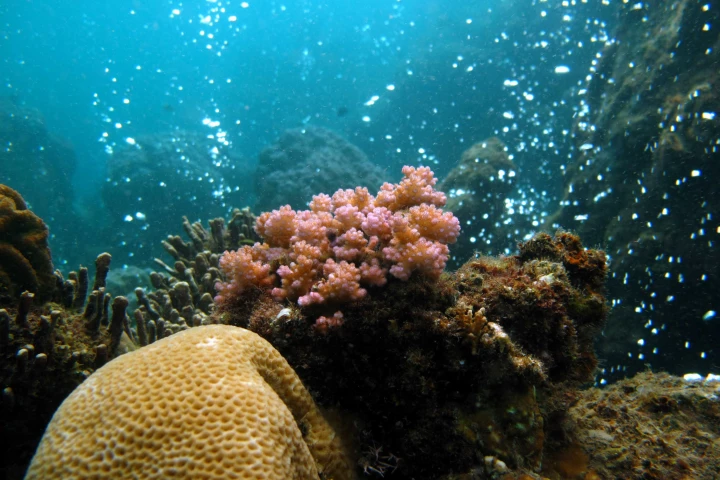Ocean acidification
-
On a remote reef, endless streams of bubbles rise from cracks in the seabed into the shallow water, fed by an underground volcanic system. For scientists, this phenomenon has become a kind of crystal ball, revealing the changes that await marine life.
-
A technique originally developed to combat acid rain has the potential to pull an enormous amount of carbon dioxide out of the atmosphere – while helping to deacidify oceans, restore rivers and boost biodiversity and fish populations.
-
Measuring ocean acidification is possible to an extent with sensors fitted to stationary buoys and vessels, but a newly fitted out deep-diving underwater drone promises to fill in the blanks in a big way.
-
Scientists have uncovered an unfortunate feedback loop that could make things worse for the climate. According to a new study, ocean acidification seems to increase the amount of nitrous oxide, a potent greenhouse gas, that’s released into the air.
-
About 65 million years ago, a huge asteroid slammed into the Earth and wiped out three quarters of all life on Earth, including the dinosaurs. Now, Yale researchers have found evidence that oceans became too acidic for marine animals to take.
-
Three species of Caribbean coral are hardy enough to survive the rising levels of ocean acidification expected to take place over the next century. Whilst the corals were able to live in the unusually hostile environment, their skeletons were seriously affected, leaving them vulnerable to erosion.
-
As the seas get warmer and more acidic, all kinds of havoc is wrought, and now a new study has identified yet another symptom. Researchers at Princeton and McGill Universities have found that the seafloor is beginning to dissolve as a result of human activity.
-
Warming oceans might sound like a good thing for swimmers, but they're wreaking havoc on marine life. Researchers at UC Davis have found that warming and acidifying waters can cause invertebrate organisms called bryozoa to begin dissolving – and other sea creatures could soon face a similar fate.
-
Researchers from the Virginia Institute of Marine Science have deployed an innovative, sensor-studded mooring – as tall as the Empire State Building – beneath waters in Antarctica usually inaccessible through the winter.
-
New research has revealed that more acidic waters as a result of climate change can throw fishes' survival instincts out of whack, and can sometimes even cause them to swim towards predators.









